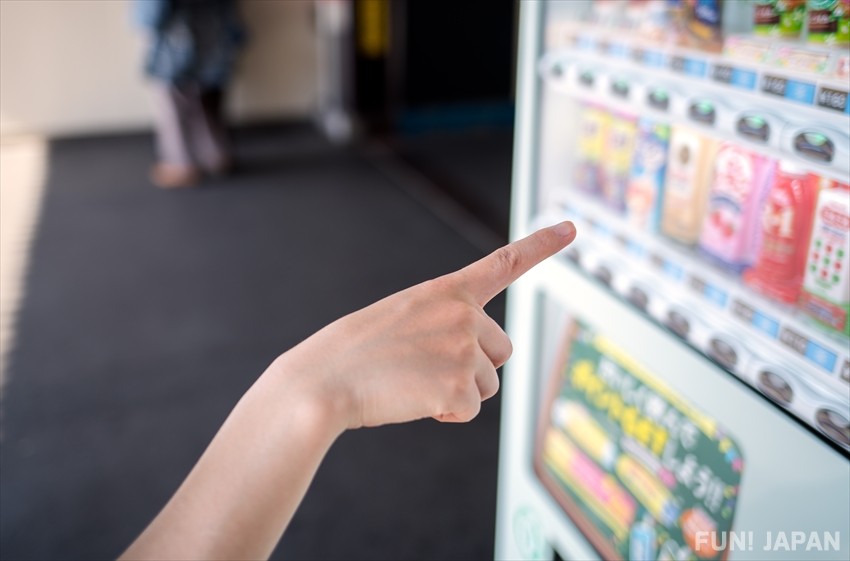
Japan’s vending machines are famous worldwide, but their contents aren’t quite as well known. While there are plenty of familiar options, there are some distinctly Japanese soft drinks to try as well. From unusually-named sports drinks to bright green sodas, the shelves of convenience stores are also a host of interesting options.
1. Yakult (ヤクルト)
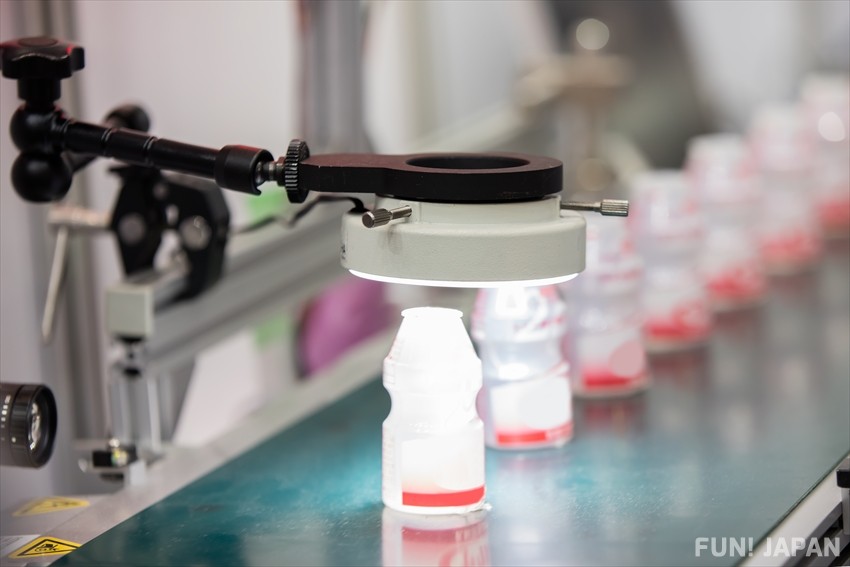
While Yakult is known across the world, it is actually Japanese and has long held a special place in the hearts (and fridges) of Japan’s homes. Sold in small 65ml or 100ml bottles, the probiotic peach-flavoured milk drink contains the Lactobacillus casei Shirota bacteria which is said to support gut health. The drink was invented in the 1930s by Minoru Shirota and is sold door-to-door by Yakult ladies in countries such as Japan and Taiwan as well as in South America.
2. Calpis (カルピス)
An uncarbonated soft drink, calpis is an unusual flavour many people will not have tried before visiting Japan. Its slightly milky, acidic flavour is often likened to yoghurt and it has been around since 1919 - originally popular as it kept well without refrigeration. The name is seen as humorous in English, but is actually a combination of cal from calcium and pis from sarpis, the Sanskrit word for clarified butter. In North America the drink was rebranded to Calpico to avoid confusion. The drink is believed to have been inspired by airag, a traditional cultured milk product the founder of Calpis, Kaiun Mishima, tried on a trip to the Mongolian region of China. Calpis is made using milk, yeast and lactic acid bacterium and left to ferment before sugar is added and after another fermentation period, is ready to drink.
3. Pocari Sweat ( ポカリスエット)
One of the more unusual brand names for Japan’s soft drinks, the lightly-grapefruit-flavoured Pocari Sweat is actually a fantastic aid in the hot summer months. The sports drink was created by Otsuka Pharmaceutical in 1980 as an electrolyte replacement drink for rehydration and recovery. While ‘Pocari’ itself has no meaning, the word was chosen for its light impression, while ‘Sweat’ was a reference to electrolytes and nutrients lost during exercise. The drink is now popular across the world and the name is believed to have helped it gain notoriety. It is sold in sachets as a powder, in bottles and cans - often in vending machines across Japan. Other popular rehydration drinks include Kirin’s Salty Lychee and Aquarius.
4. Ramune (ラムネ)
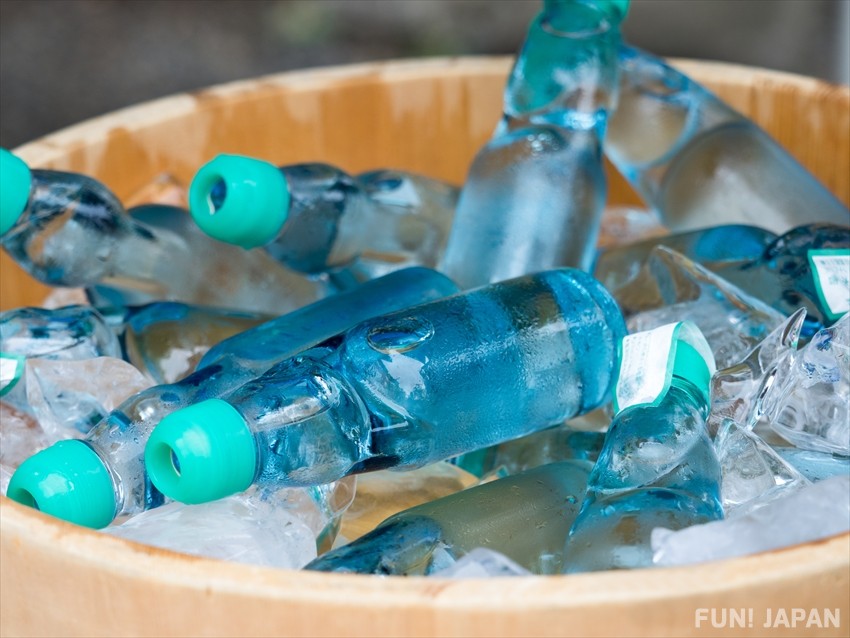
A retro classic often found in Japanese festivals, sweet shops and local shops, Ramune was Japan’s first introduction to lemonade. In 1884, Scottish pharmacist Alexander Cameron Sim introduced a carbonated lemonade-like drink to the port city of Kobe. It was known as ‘mabu soda’ after the marble placed in the bottle for the opening mechanism and was linked to preventing cholera, soon becoming popular across the country. The marble still remains, and the distinctive glass bottles are a favourite with children and families as well as those looking to reminisce, especially in summer. While the original flavour was lemon and lime, it now has a vast array of flavours, including cherry, yuzu, melon, muscat, champagne and some unusual options like teriyaki and wasabi.
5. Amazake
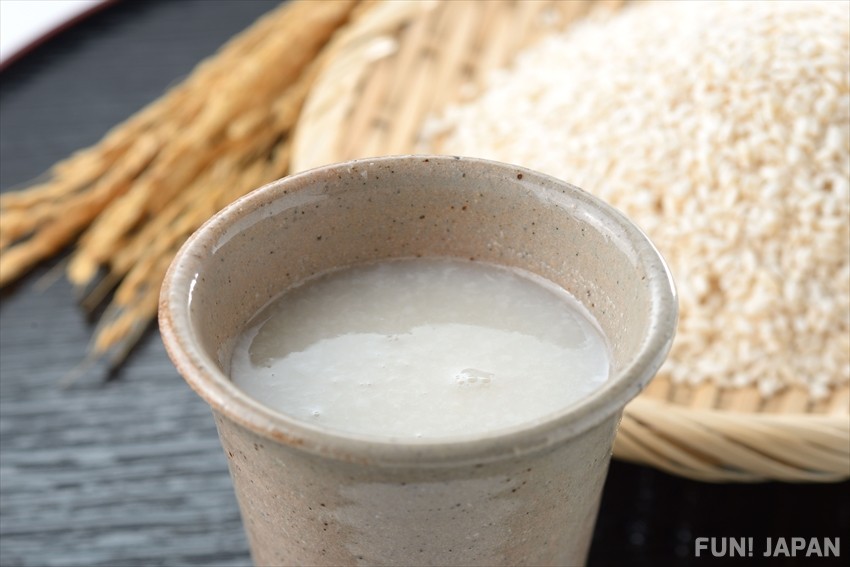
An unusual warming drink made with white rice, amazake is naturally sweet and enjoyed by all ages.
While it usually contains a low level of alcohol (under 1%), it can also be made without. The traditional technique uses either malted rice (making it non-alcoholic) or sake lees (making it mildly alcoholic) for the fermentation process. It contains glucose, amino acids, enzymes and vitamin B, making it nutritious as well as tasty. It is often sold in tea shops during winter and in stores throughout the year - either hot or cold.
6. Melon Soda
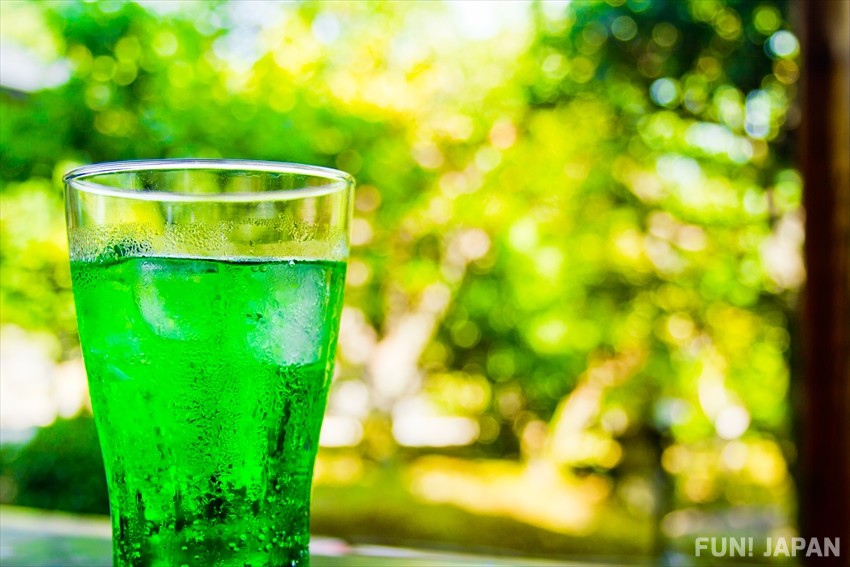
While not a traditional Japanese drink, Melon Soda is a bright green drink that’s worth at least a try during your visit. Similar tasting to a cream soda but with melon syrup, it doesn’t taste like melon but it can be strangely delicious. Often seen at drink-machines in family restaurants or karaoke bars, the flavour has since been adopted by bigger brands for the Japanese market including Fanta. One of the most well-known in Japan is Sangaria, but brands such as Suntory also have melon-flavoured options.
7. Dekavita C
Promising a vitamin boost, Dekavita C is a staple for those feeling a little under the weather. The instantly recognisable bottle is a staple on store shelves and is considered an effective hangover cure. The name Dekavita C combines ‘Deka’ meaning ‘big’, ‘vit’ from vitamins and C from vitamin C. It contains eight different vitamins and royal jelly extract, including vitamins B1, B2, B6, B12, C and P as well as niacin and pantothenic acid. As it is carbonated, the mild honey flavour becomes quite refreshing, although it is not citrus-flavoured as you might have expected.
8. Mitsuya Cider
Often causing some confusion for visitors, Japanese Cider is actually a non-alcoholic drink closer to a mix of ginger ale and lemonade. Although the flavour isn’t strong, it’s a refreshing and popular go-to drink, especially for mixing with alcohol. The most popular brand is Mitsuya which has been on the shelves since 1884. Owned by Asahi, the brand also make a popular Mitsuya Cider based sweet which is also carbonated. As with Boss Coffee, celebrity endorsements have helped propel the brand in Western media, as pop star Rick Astley was the face of the brand in the 80s and 90s.
9. Barley Tea (麦茶; むぎちゃ)
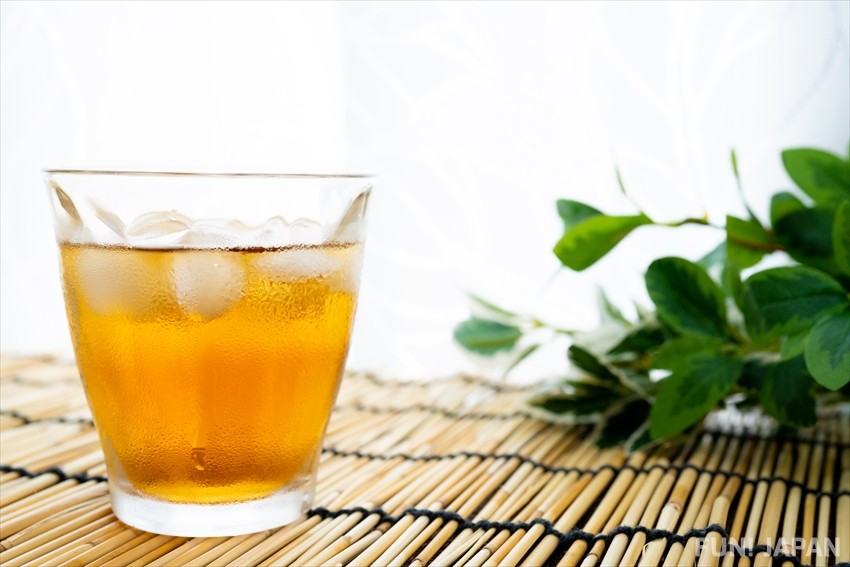
A summer-favourite, barley tea is made using roasted barley and is called mugi-cha in Japanese. While green tea is more popular overall, there is a firm place for barley tea as it is believed to be a great source of rehydration in hot weather - although it is available year-round. Come summer, restaurants will serve it to customers, convenience stores will be lining the shelves and vending machines will be fully stocked. A mild flavour, it can be an acquired taste, but will soon become a go-to drink.
10. Boss Coffee
Now synonymous with canned coffee in Japan, Suntory’s Boss Coffee brand is found in vending machines and convenience stores across the country. Started in 1992, it now has over 40 varieties including Boss Bosspresso, Boss Cafe au Lait and Boss Black. The drinks are sold either hot or cold, as is common in Japan depending on the season. One of the reasons the brand rose to fame so fast was the endorsement of Hollywood celebrities such as Tommy Lee Jones.
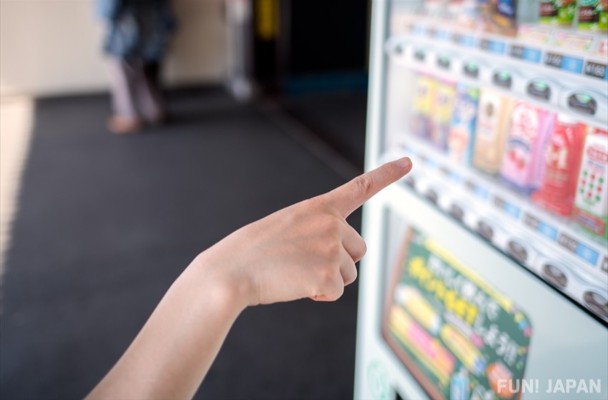
Comments